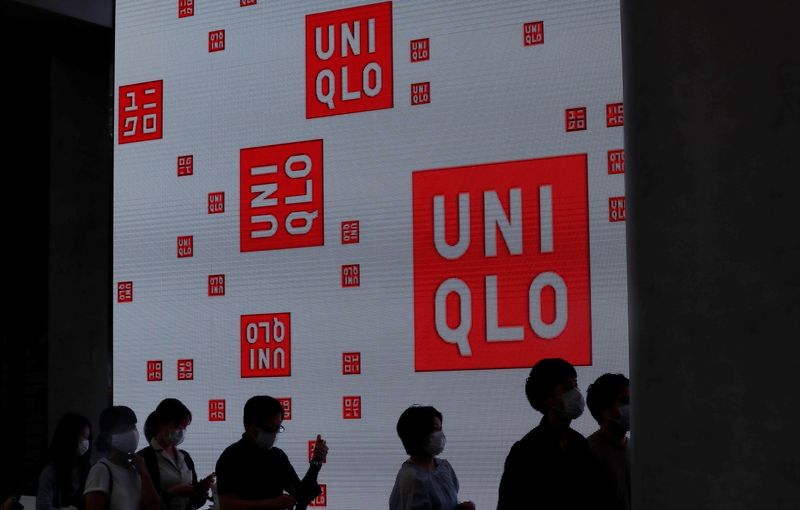Investing.com’s stocks of the week
By Eimi Yamamitsu
(Reuters) - Uniqlo parent Fast Retailing Co Ltd reported a 16% jump in first-half profit and lifted its full-year outlook on Thursday, as the Japanese apparel retailer saw signs of recovery in China and strong sales growth in Europe and North America.
Known for its affordable fleece jackets and "Heattech" thermals, Uniqlo has become a bellwether for global retailers in China, where it has around 900 stores, making it Fast Retailing's biggest foreign market and surpassing the number of stores it has in Japan.
The results add to a growing body of evidence that Chinese consumer spending is rebounding after long COVID-19 lockdowns took their toll on the world's second-largest economy.
Luxury group LVMH on Wednesday reported first-quarter sales that were more than double expectations, buoyed by resurgent demand in China.
"Performance for mainland China is now on a recovery track," Fast Retailing said in a statement.
After a "substantial decline" in first-quarter revenue and profit in mainland China, Uniqlo's operations began to recover in January, resulting in a sharp increase in second-quarter profit there, it said.
But in its home market of Japan, where Uniqlo's long success has helped make CEO Tadashi Yanai the country's richest man, profit slipped almost 2% even as revenue climbed, as a weakened yen currency raised the cost of sales.
Fast Retailing gave corporate Japan a jolt this year when it said it would raise wages by as much as 40%, sending a clear signal that rock-bottom salaries were starting to budge after decades of deflation and cost-cutting.
Yanai told a briefing on Thursday that Japan - which has long lagged behind the average of the OECD grouping of rich countries when it comes to salaries - ran the risk of not being able to secure human resources if it did not start paying younger people more.
Fast Retailing's overall wage costs rose 23% from the same period last year.
Group operating profit totalled 220 billion yen ($1.65 billion) in the six months through February, up from 189 billion yen a year earlier, as Southeast Asia, North America and Europe logged strong sales growth.
It raised its forecast for full-year profit to 360 billion yen from 350 billion yen.
Refinitiv Eikon data showed 14 analysts expected a profit of 347 billion yen.
($1 = 133.3200 yen)
